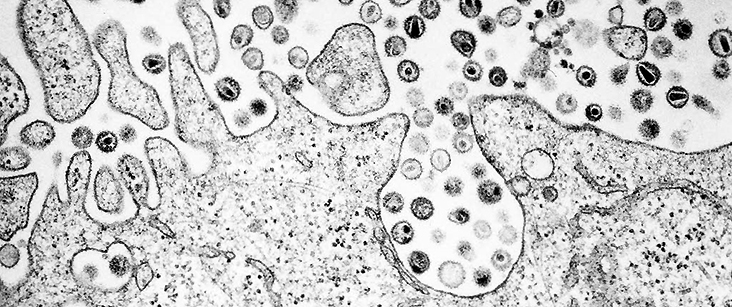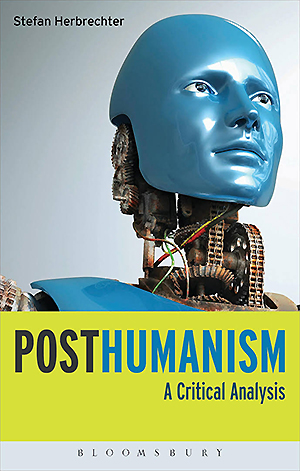 Anil Bhatti studied Germanistik, International Politics, and Philosophy at the LMU (University of Munich) and was awarded a doctorate in 1971. From 1983 to 2009 he was a professor at the Centre of German Studies, School of Language, Literature and Culture Studies of the Jawaharlal Nehru University (JNU), New Delhi. Since August 2009 he is Professor Emeritus of the University. He was a guest professor at the Universities of Kassel, Göttingen, Graz, Wien and Tübingen. He is the Honorary President of Goethe Society of India. Bhatti is recipient of the Jacob-und Wilhelm-Grimm-Preis of the DAAD (2001), recipient of the Officer’s Cross of the Order of Merit of the Federal Republic of Germany, (2005) and recipient of the Austrian Cross of Honour for Science and Art (2011). Between 2010 and 2011 he was a Fellow at the Kulturwissenschaftliches Kolleg, University of Konstanz. November 2011 he received the Research Award of the Alexander von Humboldt Foundation. In this context see Bhatti’s work on “Ähnlichkeiten” (Similarities).
Anil Bhatti studied Germanistik, International Politics, and Philosophy at the LMU (University of Munich) and was awarded a doctorate in 1971. From 1983 to 2009 he was a professor at the Centre of German Studies, School of Language, Literature and Culture Studies of the Jawaharlal Nehru University (JNU), New Delhi. Since August 2009 he is Professor Emeritus of the University. He was a guest professor at the Universities of Kassel, Göttingen, Graz, Wien and Tübingen. He is the Honorary President of Goethe Society of India. Bhatti is recipient of the Jacob-und Wilhelm-Grimm-Preis of the DAAD (2001), recipient of the Officer’s Cross of the Order of Merit of the Federal Republic of Germany, (2005) and recipient of the Austrian Cross of Honour for Science and Art (2011). Between 2010 and 2011 he was a Fellow at the Kulturwissenschaftliches Kolleg, University of Konstanz. November 2011 he received the Research Award of the Alexander von Humboldt Foundation. In this context see Bhatti’s work on “Ähnlichkeiten” (Similarities).
Homepage: www.jnu.ac.in/Faculty/abhatti
E-Mail: anilbhatti(at)hotmail.com.
Selected publications
Regarding the topic of the Winter School 2014, his areas of expertise are Postcolonial Studies, Cultural Transfer (India-Germany), Polyglotism, Similarity/Diversity.
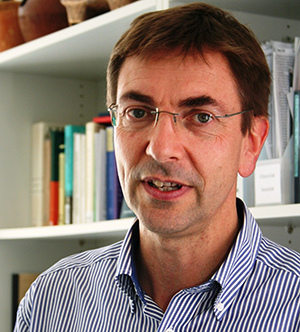 Hans Peter Hahn is professor of cultural anthropology at Goethe-University, Frankfurt a.M. /Germany. He also studied and teached at the African Studies Centre at Bayreuth University. Between 2000 and 2007, Hahn was participating in a research project on “Global Influences on Local Agency in Africa”. Among the numerous publications that resulted from this project, the most important deal with the use and consumption of the mobile phone in Africa. His theoretical interest focusses on globalization and material culture. Both fields merge in his recent publications on water (“People at the well”, 2012) and urbanism (“Urban life worlds in motion”, 2013). The shared point of view of these edited volumes is an extended understanding of the mobility of things and ideas; on how they are changing the people’s ways of life, their expectations for the future and their perceived needs and desires. The question on how the mobility of things can transform societies as well as individuals is also the topic of his most recent publication (Mobility of Things, 2013).
Hans Peter Hahn is professor of cultural anthropology at Goethe-University, Frankfurt a.M. /Germany. He also studied and teached at the African Studies Centre at Bayreuth University. Between 2000 and 2007, Hahn was participating in a research project on “Global Influences on Local Agency in Africa”. Among the numerous publications that resulted from this project, the most important deal with the use and consumption of the mobile phone in Africa. His theoretical interest focusses on globalization and material culture. Both fields merge in his recent publications on water (“People at the well”, 2012) and urbanism (“Urban life worlds in motion”, 2013). The shared point of view of these edited volumes is an extended understanding of the mobility of things and ideas; on how they are changing the people’s ways of life, their expectations for the future and their perceived needs and desires. The question on how the mobility of things can transform societies as well as individuals is also the topic of his most recent publication (Mobility of Things, 2013).
Regarding the topic of the Winter School 2014, his areas of expertise are Transforming Objects, Itineraries of the Material, Urban Anthropology, Museology, Migration, Globalization, Africa (Burkina Faso, Ghana, Togo) and beyond.
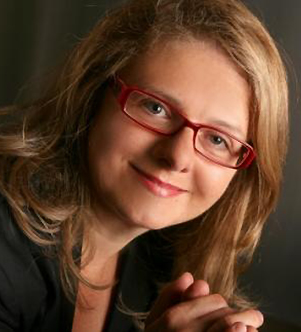 Helga Mitterbauer is Austrian visiting associate professor at the University of Alberta, Edmonton (since 2010); She concluded her PhD (2000) and Habilitation (2008) at the University of Graz where she has been teaching since 1993. She has been a visiting professor at the ELTE Budapest (2003), the University of Zagreb (2005-2006), and the University of Innsbruck (2013). She was a research-fellow at the IFK Vienna (2007/08) and founder and editor of the Yearbook in Cultural Studies „Moderne“ (since 2005). She has published about 20 volumes and numerous articles on Austrian and German literature and culture from 19th to 21st century, on the theory of cultural transfers, and on transcultural studies.
Helga Mitterbauer is Austrian visiting associate professor at the University of Alberta, Edmonton (since 2010); She concluded her PhD (2000) and Habilitation (2008) at the University of Graz where she has been teaching since 1993. She has been a visiting professor at the ELTE Budapest (2003), the University of Zagreb (2005-2006), and the University of Innsbruck (2013). She was a research-fellow at the IFK Vienna (2007/08) and founder and editor of the Yearbook in Cultural Studies „Moderne“ (since 2005). She has published about 20 volumes and numerous articles on Austrian and German literature and culture from 19th to 21st century, on the theory of cultural transfers, and on transcultural studies.
E-Mail: helga.mitterbauer(at)ualberta.ca
Selected Publications
Regarding the topic of the Winter School 2014, her areas of expertise are Transcultural Studies, Cultural Transfers, Postcolonial Theory and Cultural Transfer, Relations between Austrian and Central European Literature, Migration in Literature.
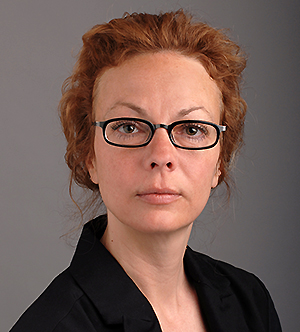 Marianne Sommer is professor for Kulturwissenschaften and SNSF-professor for the history of science and science studies at the University of Lucerne. Prior to her current position, she has been at the University of Zurich, ETH Zurich, Stanford University, Pennsylvania State University, and the Max-Planck-Institute for the History of Science in Berlin. Her research and publications have focused on the cultural history of the life, earth, and human sciences, with a particular interest in the human origins sciences. Her latest monograph represents a (pre)history of paleoanthropology and related disciplines from ca. 1800 to the present that is told along the lines of the biography of a particular human fossil skeleton (Bones and Ochre, Harvard University Press, 2007). With a small research team she currently works on the two Swiss National Science Foundation projects ‘History Within: The Phylogenetic Memory of Bones, Organisms, and Molecules’ and ‘Collecting Humanity: How Human Remains Are Made into Museum Objects’.
Marianne Sommer is professor for Kulturwissenschaften and SNSF-professor for the history of science and science studies at the University of Lucerne. Prior to her current position, she has been at the University of Zurich, ETH Zurich, Stanford University, Pennsylvania State University, and the Max-Planck-Institute for the History of Science in Berlin. Her research and publications have focused on the cultural history of the life, earth, and human sciences, with a particular interest in the human origins sciences. Her latest monograph represents a (pre)history of paleoanthropology and related disciplines from ca. 1800 to the present that is told along the lines of the biography of a particular human fossil skeleton (Bones and Ochre, Harvard University Press, 2007). With a small research team she currently works on the two Swiss National Science Foundation projects ‘History Within: The Phylogenetic Memory of Bones, Organisms, and Molecules’ and ‘Collecting Humanity: How Human Remains Are Made into Museum Objects’.
Regarding the topic of the Winter School 2014, her areas of expertise are Biographies of Objects, Museology, Human Population Genetics, Imagined Communities, Evolution.






